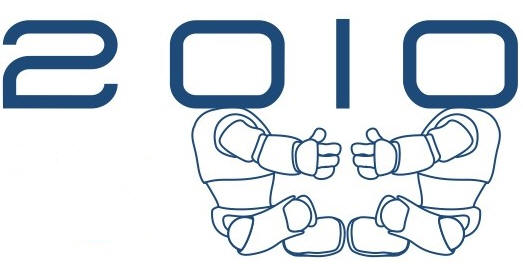

In Conjunction with AAMAS 2010
Tuesday May 11, 2010
Toronto, Canada
Toronto, Canada
 |

In Conjunction with AAMAS 2010
Toronto, Canada |
|
HomeNew: Journal Special Issue in ACM Transactions on Intelligent Systems and TechnologyNew: Workshop notes
Agent communication deals with the development of open multiagent systems. Open systems consist of autonomous and heterogeneous agents who interact in order to exchange or negotiate information, knowledge, and services. Moreover, the system configuration is dynamic: agents comes and go as they please. Essentially, an open multiagent system is any that involves multiple organizations. Software engineering for applications involving multiple organizations is in general seeing a shift away from the formulation of processes to higher-level concepts rooted in agents. Such applications include services, collaborative design and argumentation, and e-governance. The agent communication research community has a lot to offer here: past research has yielded promising insights, abstractions, languages, and theories, especially via the specification of agent communication languages and protocols. The principal challenge in agent communication research is to enable flexible and efficient communication among agents. This implies a focus on semantics, that is, the meaning of communication and pragmatics, that is, how to communicate. Semantics is foundational: a new conceptualization of meaning implies new abstractions and patterns, new theories, new operationalizations in distributed settings. By contrast, traditional distributed systems research simply focuses on operational details at the expense of flexibility. Pragmatics is fundamental in designing sound and complete protocols and verifying their computational properties. Although research in agent communication has led to useful advances, many issues remain to be addressed. Some are conceptual, for example related to the expressiveness of the abstractions in terms of modeling the application domains. Some are theoretical, for example the formalization of various notions such as strategies, correctness (compliance, interoperability, and conformance), completeness and the associated decision procedures. Some are practical, for example middleware, programming language, and tool support. Agent Communication workshop will build on previous advances towards addressing these challenging issues.
|
|||||||||||